Bank Exams Exam > Bank Exams Notes > General Awareness > Balanced Diet for a human being
Balanced Diet for a human being | General Awareness - Bank Exams PDF Download
| Table of contents |

|
| Components of Food |

|
| Carbohydrates |

|
| Fats |

|
| Proteins |

|
| Minerals |

|
| Vitamins |

|
| Water |

|
| Roughage |

|
Components of Food
- The components of food are: Carbohydrates, Fats, Proteins, Minerals, Vitamins, Water and Roughage.
- If all the components are present in optimum proportions and quantities for maintaining the body in a perfect state of health, activity, and development, then the food is called a balanced diet.
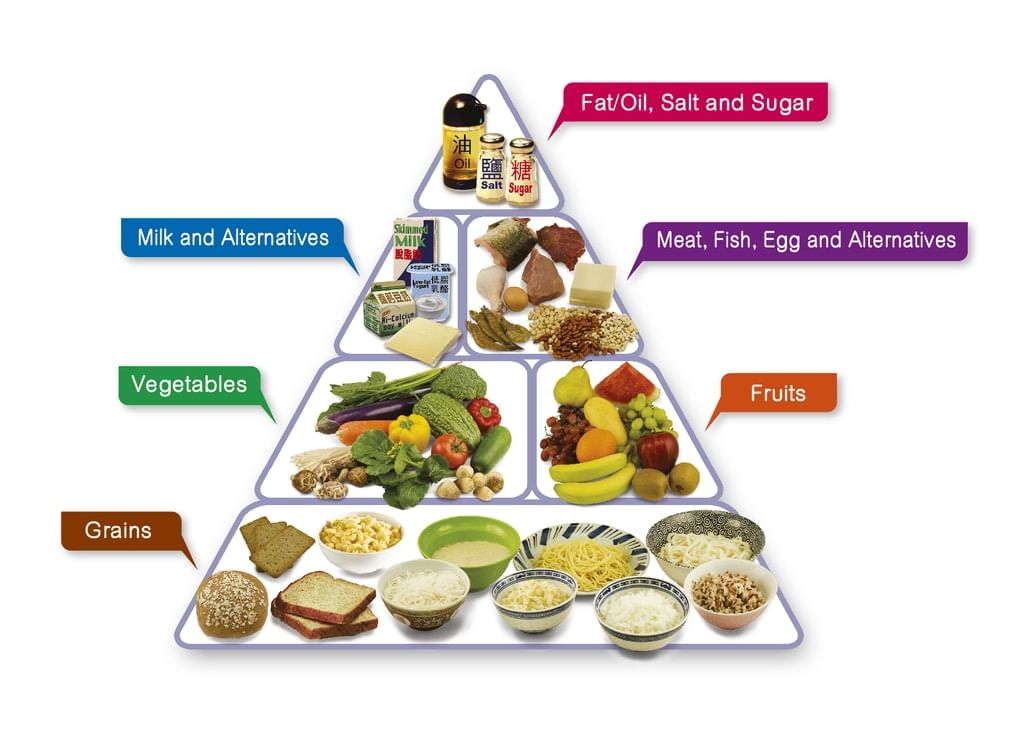 Balanced Diet
Balanced Diet
Carbohydrates
- Constitutes 3 elements: Carbon, Hydrogen and Oxygen.
- Daily requirement is 500 gms. 1 gm gives 17 KJ of energy.
- The carbohydrates of the food eaten, after being processed in the alimentary canal and liver, are supplied to the tissues mainly as glucose, often called blood sugar.
- Sources: 3 main cereals (wheat, rice and maize), sugar cane, milk, fruits, honey, beet, etc.
- They are of 3 types: Cellulose, Starch and Sugar.
- Structurally, carbohydrates are of 3 types: Monosaccharides, Disaccharides andPolysaccharides.
- Excess carbohydrates are stored in the liver in the form of glycogen.
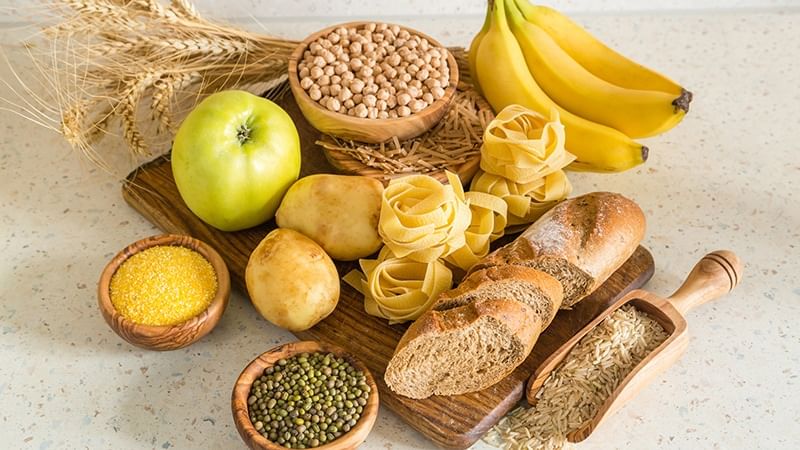 Sources of Carbohydrates
Sources of Carbohydrates
Fats
- Provides twice the energy of carbohydrates (1 g provides 37 KJ of energy).
- Acts as the reserve food material because excess fat is stored in the liver and as adipose tissue.
- An enzyme called Lipase digests fats. It breaks down into fatty acids and glycerol.
- Daily requirement: 50 grams.
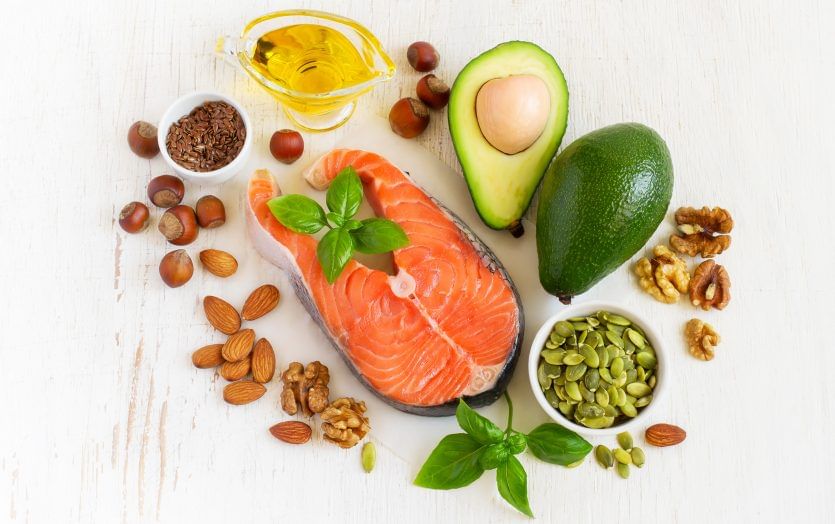 Sources of Fats
Sources of Fats
Proteins
- Made up of Carbon, Hydrogen, Oxygen and Nitrogen.
- Important for growth and repair of the body.
- Made up of amino acids.
- Kwashiorkor and Marasmus are the diseases that occur due to deficiency of protein.
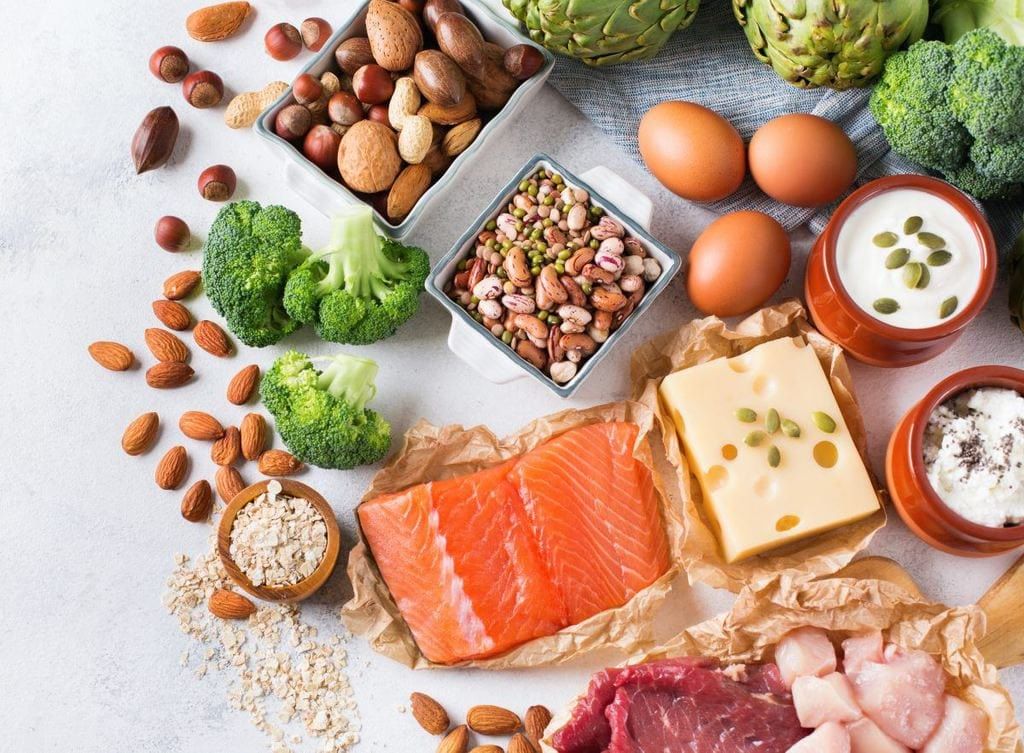 Sources of Proteins
Sources of Proteins
Minerals
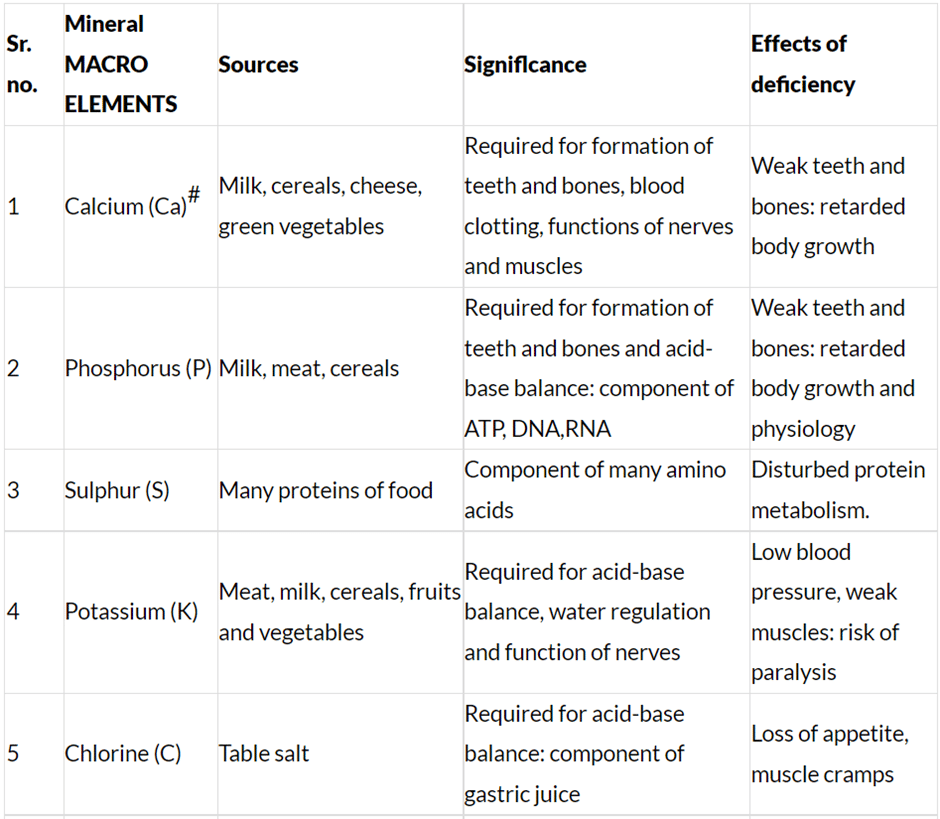
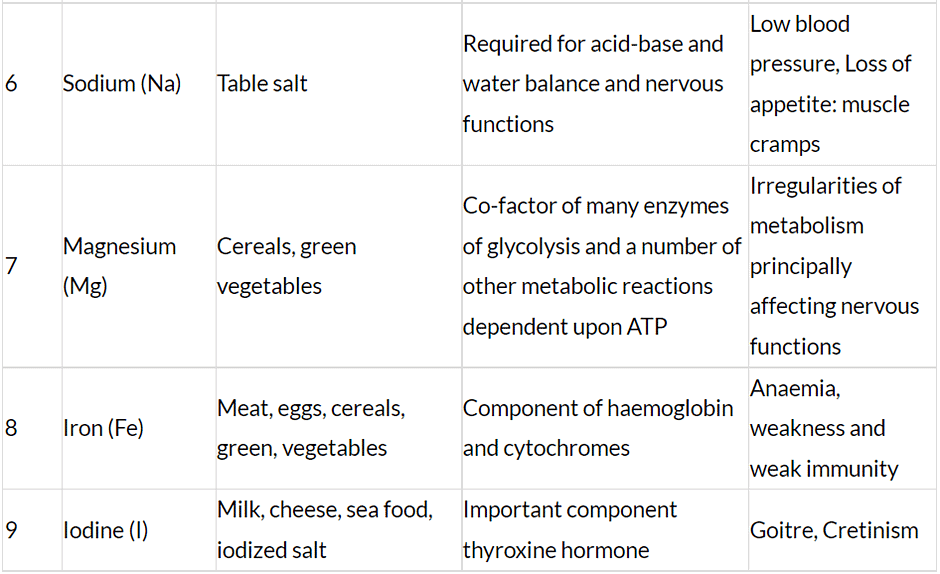
- The salt of Ca required by our body is Calcium Phosphate Ca3 (PO4)2
Vitamins
- It is necessary for normal growth, good health, good vision, proper digestion, etc. They do not provide energy to our body.
- Vitamins can be divided into two categories.
- Water-soluble: Vitamin B-complex, Vitamin C.
- Fat-soluble: Vitamin A, Vitamin D, Vitamin E, Vitamin K.
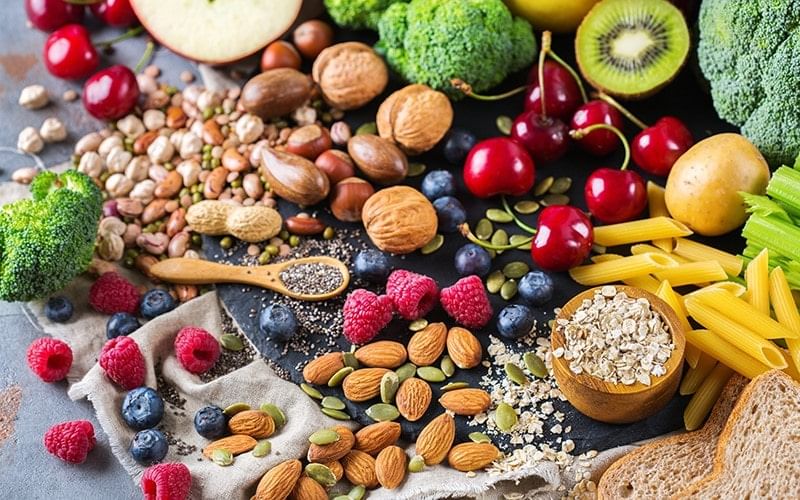 Sources of Vitamins and Minerals
Sources of Vitamins and Minerals
Types of Vitamins
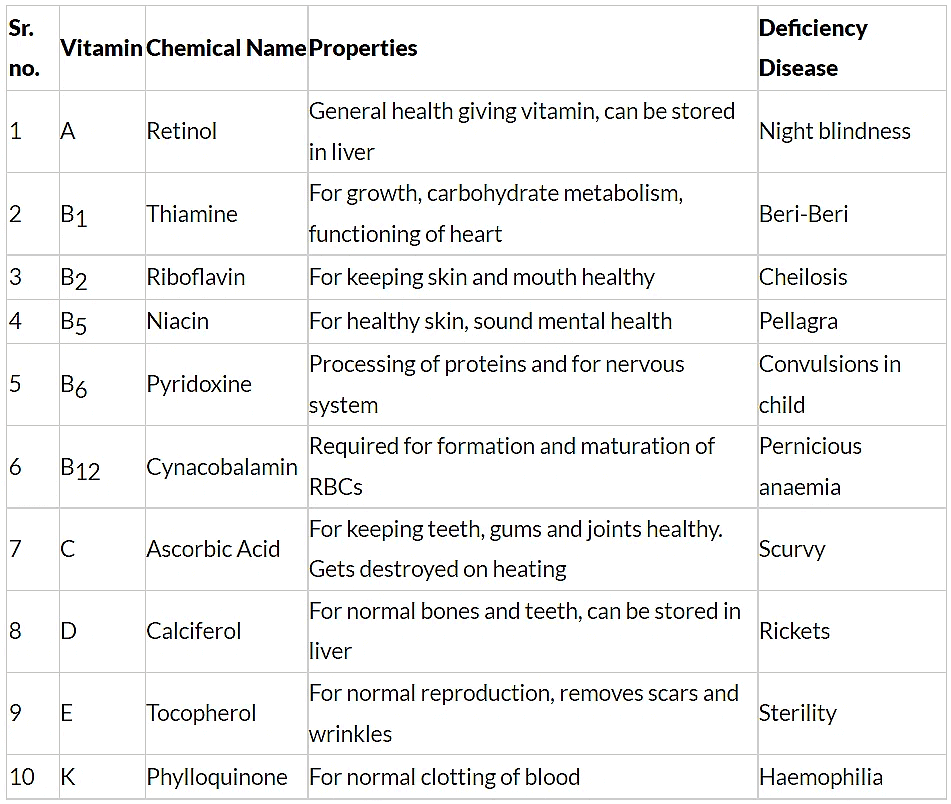
Water
- Important in digestion, transportation, excretion, and to regulate body temperature (the human body contains approximately 65% water).
Roughage
- Fibrous material is present in the cell walls of plants.
- Mainly contains cellulose.
- It doesn’t provide energy but only helps in retaining water in the body.
- One of the common sources is Daliya, which we eat in our homes.
The document Balanced Diet for a human being | General Awareness - Bank Exams is a part of the Bank Exams Course General Awareness.
All you need of Bank Exams at this link: Bank Exams
|
365 videos|700 docs|149 tests
|
FAQs on Balanced Diet for a human being - General Awareness - Bank Exams
| 1. What are the components of food? |  |
Ans. The components of food include carbohydrates, fats, proteins, minerals, vitamins, water, and roughage. These components provide the necessary energy, nutrients, and other essential elements required for the proper functioning of the human body.
| 2. What are the types of vitamins found in food? |  |
Ans. There are different types of vitamins found in food, including vitamin A, vitamin B complex (which includes B1, B2, B3, B5, B6, B7, B9, and B12), vitamin C, vitamin D, vitamin E, and vitamin K. Each type of vitamin plays a specific role in maintaining overall health and well-being.
| 3. Why are carbohydrates important in a balanced diet? |  |
Ans. Carbohydrates are an essential component of a balanced diet as they provide energy to the body. They are the primary source of fuel for the brain and muscles. Carbohydrates also help in regulating blood sugar levels and maintaining a healthy digestive system.
| 4. How do minerals contribute to a balanced diet? |  |
Ans. Minerals are crucial for maintaining proper body functions and overall health. They play a vital role in various bodily processes such as bone formation, nerve function, muscle contraction, and maintaining fluid balance. Some essential minerals include calcium, iron, potassium, magnesium, and zinc, among others.
| 5. What is the importance of water in a balanced diet? |  |
Ans. Water is essential for maintaining hydration and carrying out various bodily functions. It helps in digestion, absorption, and transportation of nutrients, regulates body temperature, lubricates joints, and flushes out waste products. Including an adequate amount of water in a balanced diet is crucial for overall health and well-being.
Related Searches
















